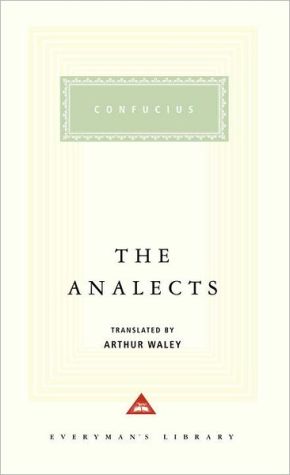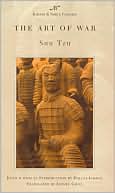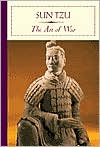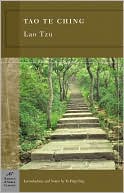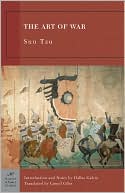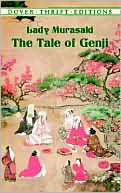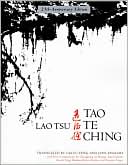The Analects
No other book in the entire history of the world has exerted a greater influence on a larger number of people over a longer period of time than this slim volume. The spiritual cornerstone of the most populous and oldest living civilization on Earth, the Analects has inspired the Chinese and all the peoples of East Asia with its affirmation of a humanist ethics. As the Gospels are to Jesus, the Analects is the only place where we can encounter the real, living Confucius. In this gem-like...
Search in google:
Rich distillation of the timeless precepts of extremely influential Chinese philosopher and social theorist. Includes "Concerning Fundamental Principles," "Concerning Government," "The Eight Dancers: Concerning Manners and Morals," and much more. Footnotes.Publishers WeeklyBecause they offer diverse and sometimes diametrically opposite meanings, the words of Chinese classics are as likely to reflect the prejudices of the translator as the are to exhibit scholarly rigor. This volume is no exception. The publisher's biography of Leys calls him "an astringent observer," and such observations are readily apparent in Leys's sometimes bad-tempered and occasionally ill-judged glosses on a thinker whom he clearly believes would have agreed with him that late 20th-century culture is undergoing the same chaotic moral crisis as 6th-century B.C. China. While the translations are often elegant, and Leys's endnotes offer a few telling examinations of the vagaries and subtleties of translating the Analects, Leys is too often diverted from the Analects by barely relevant citations from European writers and his own digs at other translators of Confucius. Furthermore, neither the introduction nor the endnotes adequately place Confucius in historical context, making the book strangely vague about Confucius's impact on his time and people.
\ \ \ \ Chapter One\ \ \ Chapter 1\ 1.1. The Master said: "To learn something and then to put it into practice at the right time: is this not a joy? To have friends coming from afar: is this not a delight? Not to be upset when one's merits are ignored: is this not the mark of a gentleman?"(*)\ 1.2. Master You said: "A man who respects his parents and his elders would hardly be inclined to defy his superiors. A man who is not inclined to defy his superiors will never foment a rebellion. A gentleman works at the root. Once the root is secured, the Way unfolds. To respect parents and elders is the root of humanity."\ 1.3. The Master said: "Clever talk and affected manners are seldom signs of goodness."\ 1.4. Master Zeng said: "I examine myself three times a day. When dealing on behalf of others, have I been trustworthy? In intercourse with my friends, have I been faithful? Have I practiced what I was taught?"\ 1.5. The Master said: "To govern a state of middle size, one must dispatch business with dignity and good faith; be thrifty and love all men; mobilize the people only at the right times."\ 1.6. The Master said: "At home, a young man must respect his parents; abroad, he must respect his elders. He should talk little, but with good faith; love all people, but associate with the virtuous. Having done this, if he still has energy to spare, let him study literature."\ 1.7. Zixia said "A man who values virtue more than good looks, who devotes all his energy to serving his father and mother, who is willing to give his life for his sovereign, who in intercourse with friend's is true to hisword—even though some may call him uneducated, I still maintain he is an educated man."\ 1.8. The Master said: "A gentleman who lacks gravity has no authority and his learning will remain shallow. A gentleman puts loyalty and faithfulness foremost; he does not befriend his moral interiors. When he commits a fault, he is not afraid to amend his ways."\ 1.9. Master Zeng said "When the dead are honored and the memory of remote ancestors is kept alive, a people's virtue is at its fullest."\ 1.10. Ziqin asked Zigong: "When the Master arrives in another country, he always becomes informed about its politics. Does he ask for such information, or is it given him?" Zigong replied: "The Master obtains it by being cordial, kind, courteous, temperate, and deferential. The Master has a way of enquiring which is quite different from other people's, is it not?"\ 1.11. The Master said: "When the father is alive, watch the sons's aspirations. When the father is dead, watch the son's actions. It three years later, the son has not veered from the father's way, he may be called a dutiful son indeed."\ 1.12. Master You said: "When practicing the ritual, what matters most is harmony. This is what made the beauty of the way of the ancient kings; it inspired their every move, great or small. Yet they knew where to stop: harmony cannot be sought for its own sake, it must always be subordinated to the ritual; otherwise it would not do."\ 1.13. Master You said: "If your promises conform to what is right, you will be able to keep your word. If your manners conform to the ritual, you will be able to keep shame and disgrace at bay. The best support is provided by one's own kinsmen."\ 1.14. The Master said: "A gentleman eats without stuffing his belly; chooses a dwelling without demanding comfort; is diligent in his office and prudent in his speech; seeks the company of the virtuous in order to straighten his own ways. Of such a man, one may truly say that he is fond of learning."\ 1.15. Zigong said: "'Poor without servility; rich without arrogance.' How is that?" The Master said: "Not bad, but better still: `Poor, yet cheerful; rich, yet considerate.'" Zigong said: "In the Poems, it is said: `Like carving horn, like sculpting ivory, like cutting jade, like polishing stone.' Is this not the same idea?" The Master said: "Ah, one can really begin to discuss the Poems with you! I tell you one thing, and you can figure out the rest."\ 1.16. The Master said: "Don't worry if people don't recognize your merits; worry that you may not recognize theirs." (*) For explanations and comments, readers should refer to the second part of this book, where all the notes are collected under numbered headings corresponding to the chapters and paragraphs of the translation. No further callouts for notes appear in the text of the translation.
MapIntroductionITo Learn, and Then1IIIn Government, the Secret9IIIEight Rows of Dancers19IVOf Villages, Humanity31VKung-yeh Ch'ang41VIJan Yung Is One Who53VIITransmitting Insight, But65VIIISurely T'ai Po79IXThe Master Rarely89XHis Native Village101XIStudies Begin111XIIYen Hui125XIIIAdept Lu137XIVYuan Szu Asked About151XVDuke Ling of Wei169XVIThe House of Chi183XVIIYang Huo193XVIIIThe Lord of Wei205XIXAdept Chang215XXEmperor Yao Said227Notes233Historical Table246Key Terms: An Outline of Confucian Thought247Further Reading251
\ Publishers Weekly - Cahners\\\\Publishers_Weekly\ Because they offer diverse and sometimes diametrically opposite meanings, the words of Chinese classics are as likely to reflect the prejudices of the translator as the are to exhibit scholarly rigor. This volume is no exception. The publisher's biography of Leys calls him "an astringent observer," and such observations are readily apparent in Leys's sometimes bad-tempered and occasionally ill-judged glosses on a thinker whom he clearly believes would have agreed with him that late 20th-century culture is undergoing the same chaotic moral crisis as 6th-century B.C. China. While the translations are often elegant, and Leys's endnotes offer a few telling examinations of the vagaries and subtleties of translating the Analects, Leys is too often diverted from the Analects by barely relevant citations from European writers and his own digs at other translators of Confucius. Furthermore, neither the introduction nor the endnotes adequately place Confucius in historical context, making the book strangely vague about Confucius's impact on his time and people.\ \ \ \ \ Publishers Weekly - Publisher's Weekly\ Because they offer diverse and sometimes diametrically opposite meanings, the words of Chinese classics are as likely to reflect the prejudices of the translator as the are to exhibit scholarly rigor. This volume is no exception. The publisher's biography of Leys calls him "an astringent observer," and such observations are readily apparent in Leys's sometimes bad-tempered and occasionally ill-judged glosses on a thinker whom he clearly believes would have agreed with him that late 20th-century culture is undergoing the same chaotic moral crisis as 6th-century B.C. China. While the translations are often elegant, and Leys's endnotes offer a few telling examinations of the vagaries and subtleties of translating the Analects, Leys is too often diverted from the Analects by barely relevant citations from European writers and his own digs at other translators of Confucius. Furthermore, neither the introduction nor the endnotes adequately place Confucius in historical context, making the book strangely vague about Confucius's impact on his time and people. (Jan.)\ \ \ Library JournalSimon Leys is the pseudonym of Pierre Ryckmans (Chinese studies, Univ. of Sydney), who tells us in the foreword that he uses a literary pen name because his intention here was to produce a "writer's translation." In fact, this well-crafted translation of Confucius departs only in subtle ways from other distinguished translations to which Leys gives due credit, such as that by Arthur Waley (1938) and D.C. Lau (1979). When his reading is in any way unusual or when he has added to the text, he discloses his rationale fully in the notes. Leys draws parallels between Confucius and thinkers more familiar to Westerners, from Heraclitus to Emerson. He also allows himself to editorialize when a passage strikes a certain chord in him, bringing a fresh, contemporary reading to what might otherwise be an obscure Chinese concept. Scholars of Chinese may quibble over some of the nuances of translation, but it is the opinions set forth in Leys's notes that will spark lively debate. Recommended for academic collections and other collections in need of a good translation of this classic work.-Mark Woodhouse, Elmira Coll. Lib., N.Y.\ \
